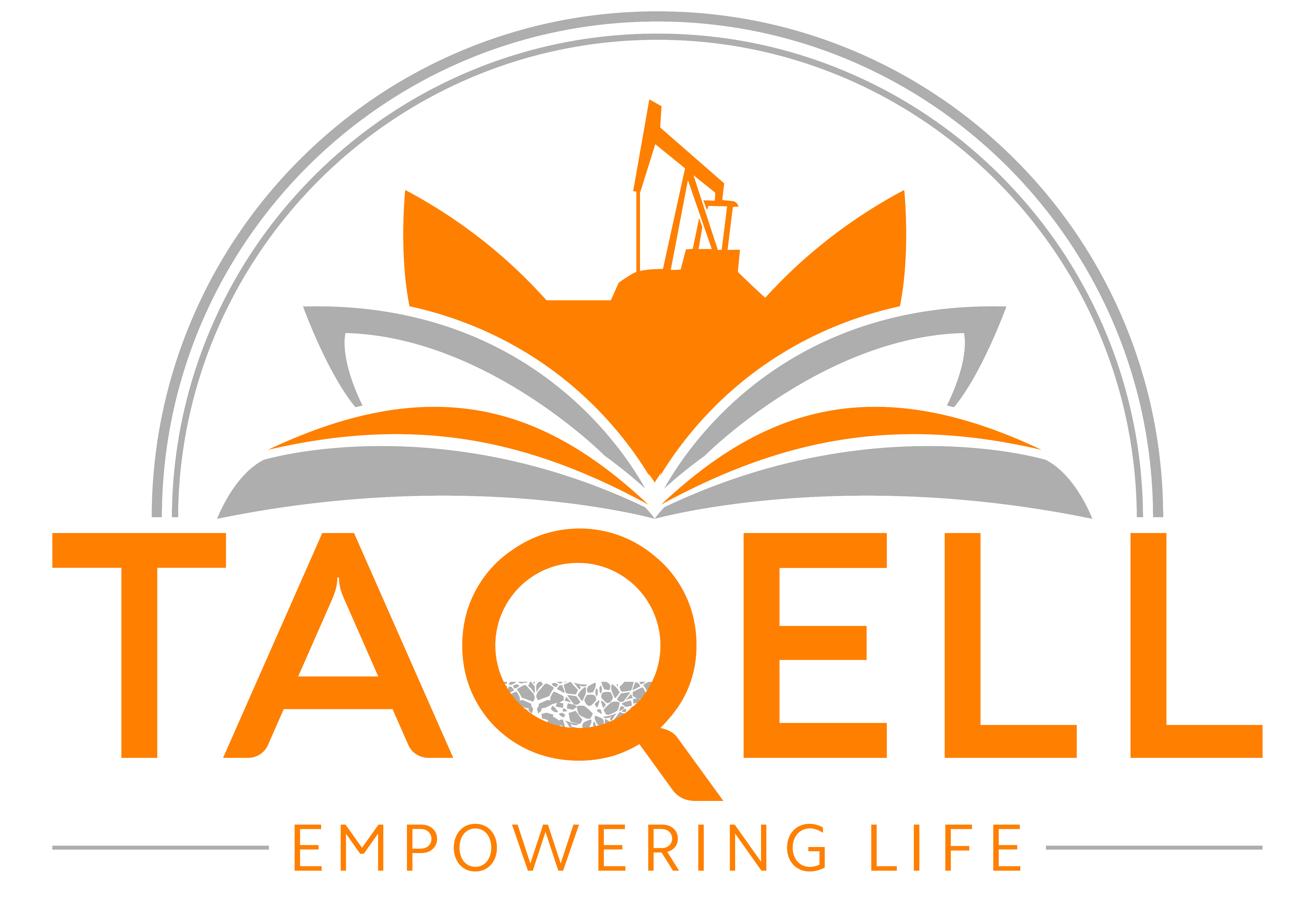Course Overview
The Rock Engineering course at TAQELL is designed to provide participants with a comprehensive understanding of the principles and applications of rock mechanics in civil engineering. This course covers the applications of rock in civil engineering, engineering classification of rock and rock masses, laboratory and field testing of rock, and the types of failures in rock.
Course Format
• Online: Flexible and accessible learning from anywhere, suitable for working professionals.
• Offline: Hands-on training with direct access to instructors and field equipment, ideal for those who prefer in-person interaction.
Detailed Course Content
1. Applications of Rock in Civil Engineering
The module on the Applications of Rock in Civil Engineering provides an in-depth exploration of the critical role of rock and rock mechanics across various construction projects. Key topics include utilizing rock as a stable foundation material for structures like buildings, bridges, and dams, as well as techniques for designing and constructing tunnels and underground spaces in rock formations. Participants will delve into the analysis and stabilization of rock slopes to prevent landslides and rock falls, and learn about the application of rock mechanics principles in mining and quarrying operations for extracting minerals and building materials. Additionally, the module covers the design and construction of hydraulic structures such as dams and reservoirs in rock environments. By engaging with these topics, participants will gain a comprehensive understanding of the diverse applications of rock in civil engineering, along with the crucial role of rock mechanics in ensuring the safety, stability, and longevity of structures in challenging geological settings.
2. Engineering Classification of Rock & Rock Masses
The module on Classification Systems and Methodologies in Rock Engineering focuses on systems and methods used to categorize rocks and rock masses based on their engineering properties. Key topics include an introduction to major rock classification systems such as the Geological Strength Index (GSI), Rock Mass Rating (RMR), and Q-system. Participants will explore techniques for characterizing rock mass quality and assessing its influence on engineering design, including the identification and characterization of joints, fractures, faults, and other discontinuities within rock masses. Additionally, the module covers the determination of index properties such as uniaxial compressive strength, tensile strength, and shear strength of rocks. By engaging with these topics, participants will gain proficiency in accurately classifying rocks and rock masses, understanding the importance of discontinuities in rock behavior, and evaluating rock mass quality for effective engineering applications.
3. Laboratory and Field Testing of Rock/Rock Mass
The module on Testing and Evaluating Mechanical Properties of Rock and Rock Masses covers comprehensive methods used in both laboratory and field settings. Key laboratory tests include the Uniaxial Compressive Strength (UCS) Test for rock compressive strength, Brazilian Tensile Strength Test for indirect tensile strength, Triaxial Compression Test for strength and deformation under stress, Point Load Test for quick strength assessment, and Slake Durability Test for durability under wet-dry cycles. Field methods include in-situ stress measurement, Pressuremeter Test for deformability and strength, seismic methods for subsurface assessment, and geophysical surveys. Participants gain hands-on experience interpreting results for geotechnical and structural engineering.
4. Types of Failures in Rock
The module on Understanding Rock Failures covers various failure types in rock and rock masses, including slope failures like plane failure, wedge failure, and toppling, tunneling failures such as roof falls and sidewall collapse, foundation failures like bearing capacity failure and settlement, and seismic-induced failures like liquefaction and landslides. It explores methods for failure analysis and prevention, including rock bolting, shotcrete, and ground anchors. Participants will learn to identify failure types, analyze mechanisms, and design effective mitigation measures to enhance the stability and safety of rock structures.
Learning Outcomes
Upon completing the Rock Engineering course, participants will be able to:
• Understand the diverse applications of rock mechanics in civil engineering.
• Accurately classify rocks and rock masses and assess their engineering properties.
• Conduct laboratory and field tests on rock and rock masses, and interpret the results.
• Identify and analyze various types of rock failures and implement mitigation measures.
Who Should Attend?
This course is ideal for:
• Geotechnical engineers and technicians.
• Civil engineers involved in rock engineering projects.
• Construction project managers and site supervisors.
• Mining and quarrying professionals.
• Engineering consultants and planners.
• Students and recent graduates in geotechnical and civil engineering.
Course Benefits
• Expert Instruction: Learn from experienced rock engineering professionals with extensive field and laboratory experience.
• Hands-on Experience: Gain practical skills through interactive sessions and real-world applications.
• Flexible Learning: Choose between online and offline formats to suit your schedule and learning preferences.
• Comprehensive Curriculum: Cover all major aspects of rock engineering and mechanics.
• Networking Opportunities: Connect with peers and industry professionals to enhance your professional network.



